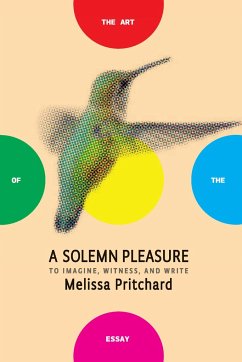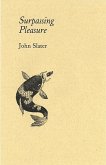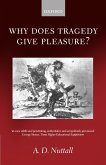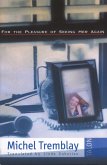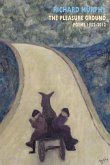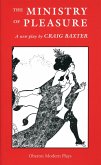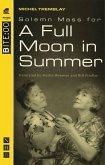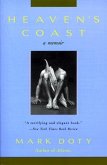16,99 €
inkl. MwSt.
Versandfertig in über 4 Wochen

8 °P sammeln
- Broschiertes Buch
- Merkliste
- Auf die Merkliste
- Bewerten Bewerten
- Teilen
- Produkt teilen
- Produkterinnerung
- Produkterinnerung
Reflections on a literary life pulled in two directions: from war zone journalism to the writing and teaching of fiction.
Andere Kunden interessierten sich auch für
![Surpassing Pleasure Surpassing Pleasure]() John SlaterSurpassing Pleasure16,99 €
John SlaterSurpassing Pleasure16,99 €![Why Does Tragedy Give Pleasure ? Why Does Tragedy Give Pleasure ?]() A. D. NuttallWhy Does Tragedy Give Pleasure ?80,99 €
A. D. NuttallWhy Does Tragedy Give Pleasure ?80,99 €![For the Pleasure of Seeing Her Again For the Pleasure of Seeing Her Again]() Michel TremblayFor the Pleasure of Seeing Her Again16,99 €
Michel TremblayFor the Pleasure of Seeing Her Again16,99 €![The Pleasure Ground The Pleasure Ground]() Richard MurphyThe Pleasure Ground18,99 €
Richard MurphyThe Pleasure Ground18,99 €![The Ministry of Pleasure The Ministry of Pleasure]() Craig BaxterThe Ministry of Pleasure18,99 €
Craig BaxterThe Ministry of Pleasure18,99 €![Solemn Mass for a Full Moon in Summer Solemn Mass for a Full Moon in Summer]() Michel TremblaySolemn Mass for a Full Moon in Summer24,99 €
Michel TremblaySolemn Mass for a Full Moon in Summer24,99 €![Heaven's Coast Heaven's Coast]() Mark DotyHeaven's Coast19,99 €
Mark DotyHeaven's Coast19,99 €-
-
-
Reflections on a literary life pulled in two directions: from war zone journalism to the writing and teaching of fiction.
Hinweis: Dieser Artikel kann nur an eine deutsche Lieferadresse ausgeliefert werden.
Hinweis: Dieser Artikel kann nur an eine deutsche Lieferadresse ausgeliefert werden.
Produktdetails
- Produktdetails
- Verlag: Bellevue Literary Press
- Seitenzahl: 192
- Erscheinungstermin: 12. Mai 2015
- Englisch
- Abmessung: 190mm x 126mm x 17mm
- Gewicht: 201g
- ISBN-13: 9781934137963
- ISBN-10: 1934137960
- Artikelnr.: 41619694
- Herstellerkennzeichnung
- Produktsicherheitsverantwortliche/r
- Europaallee 1
- 36244 Bad Hersfeld
- gpsr@libri.de
- Verlag: Bellevue Literary Press
- Seitenzahl: 192
- Erscheinungstermin: 12. Mai 2015
- Englisch
- Abmessung: 190mm x 126mm x 17mm
- Gewicht: 201g
- ISBN-13: 9781934137963
- ISBN-10: 1934137960
- Artikelnr.: 41619694
- Herstellerkennzeichnung
- Produktsicherheitsverantwortliche/r
- Europaallee 1
- 36244 Bad Hersfeld
- gpsr@libri.de
Melissa Pritchard is the author of the novel Palmerino, the short story collection The Odditorium, and the essay collection A Solemn Pleasure: To Imagine, Witness, and Write, among other books. She has received the Flannery O’Connor, Janet Heidinger Kafka, and Carl Sandburg awards and two of her short fiction collections were New York Times Notable Book and Editors’ Choice selections. Her fiction, essays, and journalism have also appeared in numerous magazines, textbooks, anthologies, and journals, including the Nation, Paris Review, O, The Oprah Magazine, A Public Space, Ecotone, Wilson Quarterly, and the Chicago Tribune as well as the PEN/O. Henry Prize Stories and Pushcart Prize anthologies. Emeritus Professor of English and Women’s Studies at Arizona State University, she now lives in Columbus, Georgia.
I.
A Room in London
1. The writer lives for two months in London, in another writer's cramped but
atmospheric refuge.
Spirit and Vision
2. In this essay, the question "why write?" is posed and by way of an answer,
Walt Whitman is shown to be a writer of compassionate witness, in contrast
to the profit-based pressures of the marketplace.
From the Deep South to the Desert South: An Epiphyte's Confession
3. Aware of the power of region in fiction, the writer wonders if her own
bland, semi-erased origins will be an obstacle to her literary ambitions.
On Kaspar Hauser
4. In the British Library, composing a fictional account of the German-born
feral child, Kaspar Hauser, the writer comes to see books as devotional
objects, holy histories, reliquaries of the human mind.
II.
Time and Biology: On the Threshold of the Sacred
5. How inescapable pressures of temporality and mortality upon any writer's
work can be met with cultivated courage and an undiminished passion for
expressing emotional truths.
Elephant in the Dark
6. In this essay, an argument is made for "point of view" as being one of the
most critical, early decisions to be made by the writer when embarking on a
new story.
The Gift of Warwick
7. A powerful, bittersweet arc of community can emerge in a writing workshop
over weeks or months, attesting to attachments formed by a common
vulnerability of writers and their shared passion for language and story.
III.
Doxology
8. The origins and history of the dachshund lead into the author's own love
for her miniature male dachshund, Simon.
A Solemn Pleasure
9. When the writer reluctantly travels to a writing residency in a castle
outside of Edinburgh, Scotland, weeks after her mother's death, her grief
is given perspective when she discovers a cemetery of ancient headstones,
each inscription a compressed, often tragic, story.
A Graven Space
10. In this reflective essay on Georgia O'Keefe, a question emerges: is it
possible we idealize the lives of renowned artists in an attempt to
unconsciously avoid responsibility for the success or failure of our own
creativity?
Decomposing Articles of Faith
11. Here is an unorthodox, even heretical, response to familiar phrases of
Catholic prayer by the writer, herself an unorthodox, even heretical,
Catholic.
IV.
Finding Ashton
12. In this piece, the writer embeds with six female soldiers in Panjshir
Province, Afghanistan, and forms an unexpected attachment to the youngest,
Senior Airman Ashton Goodman, who will be killed by an IED outside Bagram
Air Field four months later.
"Still, God Helps You": Memories of a Sudanese Child Slave
13. The harrowing story of a Sudanese boy captured from his village and
enslaved by the Janjaweed, only to escape years later into still more
harrowing circumstances, as told to the writer by William Akoi Mawwin, now
the writer's informally adopted son.
Circle of Friends
14. Bereft and directionless, in quiet crisis, the writer travels with
photographers Angela Fisher and Carol Beckwith to the remote Omo River
region of Ethiopia, gaining an unexpected perspective on aging and
loneliness.
V.
On Bibliomancy, Anthropodermic Bibliopegy and the Eating Papers
15. An essay on books, focusing on the use of books for divination, on rare but
extant books bound in human skin, and on the ancient healing practice of
eating words written on paper.
A Room in London
1. The writer lives for two months in London, in another writer's cramped but
atmospheric refuge.
Spirit and Vision
2. In this essay, the question "why write?" is posed and by way of an answer,
Walt Whitman is shown to be a writer of compassionate witness, in contrast
to the profit-based pressures of the marketplace.
From the Deep South to the Desert South: An Epiphyte's Confession
3. Aware of the power of region in fiction, the writer wonders if her own
bland, semi-erased origins will be an obstacle to her literary ambitions.
On Kaspar Hauser
4. In the British Library, composing a fictional account of the German-born
feral child, Kaspar Hauser, the writer comes to see books as devotional
objects, holy histories, reliquaries of the human mind.
II.
Time and Biology: On the Threshold of the Sacred
5. How inescapable pressures of temporality and mortality upon any writer's
work can be met with cultivated courage and an undiminished passion for
expressing emotional truths.
Elephant in the Dark
6. In this essay, an argument is made for "point of view" as being one of the
most critical, early decisions to be made by the writer when embarking on a
new story.
The Gift of Warwick
7. A powerful, bittersweet arc of community can emerge in a writing workshop
over weeks or months, attesting to attachments formed by a common
vulnerability of writers and their shared passion for language and story.
III.
Doxology
8. The origins and history of the dachshund lead into the author's own love
for her miniature male dachshund, Simon.
A Solemn Pleasure
9. When the writer reluctantly travels to a writing residency in a castle
outside of Edinburgh, Scotland, weeks after her mother's death, her grief
is given perspective when she discovers a cemetery of ancient headstones,
each inscription a compressed, often tragic, story.
A Graven Space
10. In this reflective essay on Georgia O'Keefe, a question emerges: is it
possible we idealize the lives of renowned artists in an attempt to
unconsciously avoid responsibility for the success or failure of our own
creativity?
Decomposing Articles of Faith
11. Here is an unorthodox, even heretical, response to familiar phrases of
Catholic prayer by the writer, herself an unorthodox, even heretical,
Catholic.
IV.
Finding Ashton
12. In this piece, the writer embeds with six female soldiers in Panjshir
Province, Afghanistan, and forms an unexpected attachment to the youngest,
Senior Airman Ashton Goodman, who will be killed by an IED outside Bagram
Air Field four months later.
"Still, God Helps You": Memories of a Sudanese Child Slave
13. The harrowing story of a Sudanese boy captured from his village and
enslaved by the Janjaweed, only to escape years later into still more
harrowing circumstances, as told to the writer by William Akoi Mawwin, now
the writer's informally adopted son.
Circle of Friends
14. Bereft and directionless, in quiet crisis, the writer travels with
photographers Angela Fisher and Carol Beckwith to the remote Omo River
region of Ethiopia, gaining an unexpected perspective on aging and
loneliness.
V.
On Bibliomancy, Anthropodermic Bibliopegy and the Eating Papers
15. An essay on books, focusing on the use of books for divination, on rare but
extant books bound in human skin, and on the ancient healing practice of
eating words written on paper.
I.
A Room in London
1. The writer lives for two months in London, in another writer's cramped but
atmospheric refuge.
Spirit and Vision
2. In this essay, the question "why write?" is posed and by way of an answer,
Walt Whitman is shown to be a writer of compassionate witness, in contrast
to the profit-based pressures of the marketplace.
From the Deep South to the Desert South: An Epiphyte's Confession
3. Aware of the power of region in fiction, the writer wonders if her own
bland, semi-erased origins will be an obstacle to her literary ambitions.
On Kaspar Hauser
4. In the British Library, composing a fictional account of the German-born
feral child, Kaspar Hauser, the writer comes to see books as devotional
objects, holy histories, reliquaries of the human mind.
II.
Time and Biology: On the Threshold of the Sacred
5. How inescapable pressures of temporality and mortality upon any writer's
work can be met with cultivated courage and an undiminished passion for
expressing emotional truths.
Elephant in the Dark
6. In this essay, an argument is made for "point of view" as being one of the
most critical, early decisions to be made by the writer when embarking on a
new story.
The Gift of Warwick
7. A powerful, bittersweet arc of community can emerge in a writing workshop
over weeks or months, attesting to attachments formed by a common
vulnerability of writers and their shared passion for language and story.
III.
Doxology
8. The origins and history of the dachshund lead into the author's own love
for her miniature male dachshund, Simon.
A Solemn Pleasure
9. When the writer reluctantly travels to a writing residency in a castle
outside of Edinburgh, Scotland, weeks after her mother's death, her grief
is given perspective when she discovers a cemetery of ancient headstones,
each inscription a compressed, often tragic, story.
A Graven Space
10. In this reflective essay on Georgia O'Keefe, a question emerges: is it
possible we idealize the lives of renowned artists in an attempt to
unconsciously avoid responsibility for the success or failure of our own
creativity?
Decomposing Articles of Faith
11. Here is an unorthodox, even heretical, response to familiar phrases of
Catholic prayer by the writer, herself an unorthodox, even heretical,
Catholic.
IV.
Finding Ashton
12. In this piece, the writer embeds with six female soldiers in Panjshir
Province, Afghanistan, and forms an unexpected attachment to the youngest,
Senior Airman Ashton Goodman, who will be killed by an IED outside Bagram
Air Field four months later.
"Still, God Helps You": Memories of a Sudanese Child Slave
13. The harrowing story of a Sudanese boy captured from his village and
enslaved by the Janjaweed, only to escape years later into still more
harrowing circumstances, as told to the writer by William Akoi Mawwin, now
the writer's informally adopted son.
Circle of Friends
14. Bereft and directionless, in quiet crisis, the writer travels with
photographers Angela Fisher and Carol Beckwith to the remote Omo River
region of Ethiopia, gaining an unexpected perspective on aging and
loneliness.
V.
On Bibliomancy, Anthropodermic Bibliopegy and the Eating Papers
15. An essay on books, focusing on the use of books for divination, on rare but
extant books bound in human skin, and on the ancient healing practice of
eating words written on paper.
A Room in London
1. The writer lives for two months in London, in another writer's cramped but
atmospheric refuge.
Spirit and Vision
2. In this essay, the question "why write?" is posed and by way of an answer,
Walt Whitman is shown to be a writer of compassionate witness, in contrast
to the profit-based pressures of the marketplace.
From the Deep South to the Desert South: An Epiphyte's Confession
3. Aware of the power of region in fiction, the writer wonders if her own
bland, semi-erased origins will be an obstacle to her literary ambitions.
On Kaspar Hauser
4. In the British Library, composing a fictional account of the German-born
feral child, Kaspar Hauser, the writer comes to see books as devotional
objects, holy histories, reliquaries of the human mind.
II.
Time and Biology: On the Threshold of the Sacred
5. How inescapable pressures of temporality and mortality upon any writer's
work can be met with cultivated courage and an undiminished passion for
expressing emotional truths.
Elephant in the Dark
6. In this essay, an argument is made for "point of view" as being one of the
most critical, early decisions to be made by the writer when embarking on a
new story.
The Gift of Warwick
7. A powerful, bittersweet arc of community can emerge in a writing workshop
over weeks or months, attesting to attachments formed by a common
vulnerability of writers and their shared passion for language and story.
III.
Doxology
8. The origins and history of the dachshund lead into the author's own love
for her miniature male dachshund, Simon.
A Solemn Pleasure
9. When the writer reluctantly travels to a writing residency in a castle
outside of Edinburgh, Scotland, weeks after her mother's death, her grief
is given perspective when she discovers a cemetery of ancient headstones,
each inscription a compressed, often tragic, story.
A Graven Space
10. In this reflective essay on Georgia O'Keefe, a question emerges: is it
possible we idealize the lives of renowned artists in an attempt to
unconsciously avoid responsibility for the success or failure of our own
creativity?
Decomposing Articles of Faith
11. Here is an unorthodox, even heretical, response to familiar phrases of
Catholic prayer by the writer, herself an unorthodox, even heretical,
Catholic.
IV.
Finding Ashton
12. In this piece, the writer embeds with six female soldiers in Panjshir
Province, Afghanistan, and forms an unexpected attachment to the youngest,
Senior Airman Ashton Goodman, who will be killed by an IED outside Bagram
Air Field four months later.
"Still, God Helps You": Memories of a Sudanese Child Slave
13. The harrowing story of a Sudanese boy captured from his village and
enslaved by the Janjaweed, only to escape years later into still more
harrowing circumstances, as told to the writer by William Akoi Mawwin, now
the writer's informally adopted son.
Circle of Friends
14. Bereft and directionless, in quiet crisis, the writer travels with
photographers Angela Fisher and Carol Beckwith to the remote Omo River
region of Ethiopia, gaining an unexpected perspective on aging and
loneliness.
V.
On Bibliomancy, Anthropodermic Bibliopegy and the Eating Papers
15. An essay on books, focusing on the use of books for divination, on rare but
extant books bound in human skin, and on the ancient healing practice of
eating words written on paper.
